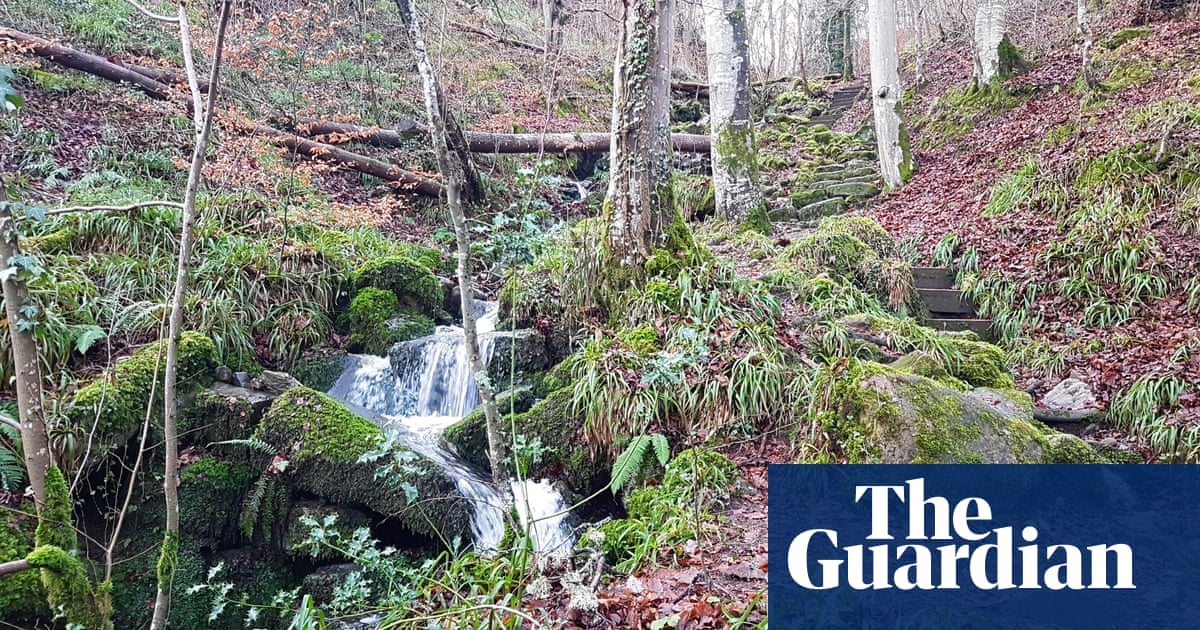
A week into Germany’s mega-fussball-spielfest and Euro 2024 feels good. Following the games through Munich, Essen, Düsseldorf and Cologne has been a privilege and a joy.
The football has been gripping and at times agreeably chaotic, as though the players have themselves felt liberated outside the elite club game, a high-summer holiday from the latest touchline control freak in executive trainers.
Even the outbreaks of match-day chaos have felt, in between the pain, like a clever myth-busting scheme devised by the Ministry Against Cultural Stereotypes. As you can see, we’re really not that efficient. That’s not us guys! And no, the trains will not run on time.
Beyond this Germany is an easy country to be in. The people are friendly. The bars and bakeries are lovely. The cities are a potent mix of cultures: Cologne baklava, the kebabs of Essen, the mind-bending schnitzel-overload of the Munich cafe scene, schnitzels the size of stingrays, schnitzels that will haunt you.
Germany is warm and rich in detail. Germany is wealthy and comfortable. And of course, Germany is also, to me, terrifying.
Sorry, Germany! But this is still the case. Perhaps even more so now, even as Germany is staging a feelgood football tournament with the (quietly terrifying) motto United in the Heart of Europe.
I say this as someone who loves being here. And as someone who is kind of German too, German enough to qualify for the Deutsche Nationalmannschaft, descended like many others from the mass of people displaced in central Europe by the second world war.
My own family was Jewish enough and communist enough to meet the criteria for extermination. They got the Gestapo knock, fled, went into hiding. There are improbable stories (most people who got out have improbable stories: otherwise you didn’t get out).
Family myth dictates one of my distant uncles was pulled off a train and shot. The bullet passed through his neck, he lay down for a bit, got up and rejoined the resistance.
They escaped (mostly) to England; some, my father included, from Berlin. The family house in west London was full of people yelling in German. I still feel Austro-German in my blood, my pretzel-guzzling cabbage-hungry soul.
But Germany is also still terrifying. Germany is modern gothic. It just is and will remain so if you have those inherited associations, the dusty letters in the loft, the inherited Germania, the lockets and the photos.
Of course, this is in many ways deeply unfair to Germany. It is nearly 80 years since the collapse of the Third Reich. Germany has spent a human lifetime processing this and making it OK and fine. Germany is a great liberal democracy. Germany has stringent laws around fascism and fascism-adjacent stuff. Stop talking about the past! What is this, 10 German bombers with long words?
The thing is, we may be done with the past but the past isn’t always done with us. The British empire is also over, but its scars are still visibly present. Germany’s past also still lives just behind the present and still affects those who inherited it. It is what some have called Germany’s silent scream, just out of sight behind the reconstructed surfaces. The great liberal democracy is also the place that tried to kill you.
Here, by way of example, is a non-exhaustive list of German things that have felt terrifying to me, begun on my first day at the Euros when a happy German woman was laughing uncontrollably on a train passing through woodland outside Munich and I realised that happy uncontrollable German laughter is terrifying.
German trains are terrifying. German railway sidings are terrifying. There are transport vibes here, fleeing energy. A German forest is terrifying, in particular a German forest clearing. An empty German park at dusk is terrifying. Any German village square is terrifying, any element of topography that raises the, OK, fine, I wonder what happened here dynamic.
What else? German dark wood furniture. A row of parked German bicycles (Where are they going? Will I need one?). German staircases, corridors, suitcases. Most German shoes. All discarded German shoes. This is all – and there is no judgment here, no censure – quietly terrifying.
And yes, this is there in the details around the football. The gothic is still here just below the surface. England are based in lovely Erfurt, which is great and very sensible, and also a place where the entire Jewish community was rounded up and sent to the death camps from 1941. England are training at a five-star golf resort with a cinema room. England are also training just down the road from Buchenwald, site of some of the most hideous atrocities ever perpetrated. There’s a cinema room!
It’s not just about England. On Wednesday evening Germany played Hungary at the 51,000 capacity Stuttgart Arena, previously known, among other things, as the Adolf-Hitler-Kampfbahn. It’s all in the past!
Also happening in Stuttgart right now, the trial of 27 people accused of plotting a right-wing military coup that would have involved “storming the Reichstag”, led by someone called Heinrich XIII Prinz Reuss, who harks back to the certainties of Kaiser-era Germany. Move on! Look forward!
And yes, this is related to Uefa Euro 2024 too. For a start, every one of these big sporting events is political theatre of some kind. We talked about politics in Qatar. We will talk about politics with Fifa in the US and Saudi Arabia. And right now these current Euros are taking place against the most fraught European political landscape since the fall of the Berlin Wall, right at the trembling, sputtering heart of a war-shadowed continent.
The most notable mood music to the tournament is the backdrop of electoral jeopardy. In France the snap elections taking place either side of the quarter-finals could yet see Les Bleus watched from the stands by a Le Penist far-right prime minister, drawing some startlingly direct calls to vote from Kylian Mbappé and Marcus Thuram during Uefa press conferences. In Britain we have a general election at the same time, with the ruling party being chased in the polls by Reform UK, also right-wing extremists obsessed with immigration.
As for Germany, well, on the day Scotland played Switzerland in Cologne – kilts, fun, beer, trips to the Gestapo museum – the local Kölner Stadt-Anzeiger newspaper published an article quoting the Office For The Protection Of The Constitution, which has logged a rapid growth in extremism.
Antisemitic hate crimes have “increased massively”. Right-wing hate crimes are on the rise. Violent left-wing extremism has increased. Hostile agents are stirring discontent with misinformation. Germany has a major problem with anti-Islamic fear, hate and cultural clash.
Plus there is the rise of the Alternative für Deutschland party, which polls at 30% in the areas around England’s five-star golf base (there’s a cinema screen!). Some of AfD’s members recently urged Germans to look again at the sadly dismissed history of the SS, because they’re not all bad apples, you know. The past is past. But the past is also a map, complete with warning signs and forks in the road.
As ever football, the great public address system, will provide an echo board for all this. On Tuesday night Cologne was thronged with flag-waving German Turks after the thrilling defeat of Georgia in at the Westfalenstadion, scenes of celebration among the very people the AfD has been talking about deporting, drawing lines of German-ness based on blood.
United in the heart of Europe! It feels like the height of naivety to hope football could ever really speak to this kind of real-world division, let alone heal it. But why not shine a light, apply that mass-media lens, or at the very least provide some performative sense of unity. With any luck Germany can still be quietly, usefully, correctively terrifying, just below the surface, for a little while longer.












